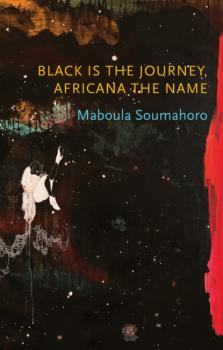John Wiley & Sons Limited
Все книги издательства John Wiley & Sons LimitedMaking Sense of AI
Industrial robots, self-driving cars, customer-service chatbots and Google’s algorithmic predictions have brought the topic of artificial intelligence into public debate. Why is AI the source of such intense controversy and what are its economic, political, social and cultural consequences? Tracing the changing fortunes of artificial intelligence, Elliott develops a systematic account of how automated intelligent machines impact different spheres and aspects of public and private life. Among the issues discussed are the automation of workforces, surveillance capitalism, warfare and lethal autonomous weapons, the spread of racist robots and the automation of social inequalities. Elliott also considers the decisive role of AI in confronting global risks and social futures, including global pandemics such as COVID-19, and how smart algorithms are impacting the search for energy security and combating climate change. Making Sense of AI provides a judiciously comprehensive account of artificial intelligence for those with little or no previous knowledge of the topic. It will be an invaluable book both for students in the social sciences and humanities and for general readers.
Living as a Bird
In the first days of spring, birds undergo a spectacular metamorphosis. After a long winter of migration and peaceful coexistence, they suddenly begin to sing with all their might, varying each series of notes as if it were an audiophonic novel. They cannot bear the presence of other birds and begin to threaten and attack them if they cross a border, which might be invisible to human eyes but seems perfectly tangible to birds. Is this display of bird aggression just a pretence, a game that all birds play? Or do birds suddenly become territorial – and, if so, why? By attending carefully to the ways that birds construct their worlds and ornithologists have tried to understand them, Despret sheds fresh light on the activities of both and, at the same time, enables us to become more aware of the multiple worlds and modes of existence that characterize the planet we share in common with birds and other species.
Structural Anthropology Zero
This volume of Lévi-Strauss's writings from 1941 to 1947 bears witness to a period of his work which is often overlooked but which was the crucible for the structural anthropology that he would go on to develop in the years that followed. Like many European Jewish intellectuals, Lévi-Strauss had sought refuge in New York while the Nazis overran and occupied much of Europe. He had already been introduced to Jakobson and structural linguistics but he had not yet laid out an agenda for structuralism, which he would do in the 1950s and 60s. At the same time, these American years were the time when Lévi-Strauss would learn of some of the world's most devastating historical catastrophes – the genocide of the indigenous American peoples and of European Jews. From the beginning of the 1950s, Lévi-Strauss's anthropology tacitly bears the heavy weight of the memory and possibility of the Shoah. To speak of 'structural anthropology zero' is therefore to refer to the source of a way of thinking which turned our conception of the human on its head. But this prequel to Structural Anthropology also underlines the sense of a tabula rasa which animated its author at the end of the war as well as the project – shared with others – of a civilizational rebirth on novel grounds. Published here in English for the first time, this volume of Lévi-Strauss’s texts from the 1940s will be of great interest to students and scholars in anthropology, sociology and the social sciences generally.
Black is the Journey, Africana the Name
In this highly original book, Maboula Soumahoro explores the cultural and political vastness of the Black Atlantic, where Africa, Europe, and the Americas were tied together by the brutal realities of the slave trade and colonialism. Each of these spaces has its own way of reading the Black body and the Black experience, and its own modes of visibility, invisibility, silence, and amplification of Black life. By weaving together her personal history with that of France and its abiding myth of color-blindness, Maboula Soumahoro highlights the banality and persistence of structural racism in France today, and shows that freedom will be found in the journey and movement between the sites of the Atlantic triangle. Africana is the name of that freedom. How can we build and reflect on a collective diasporic identity through a personal journey? What are the limits and possibilities of this endeavor, when the personal journey is that of oft-erased bodies and stories, de-humanized lives, and when Black populations in Africa, the Americas, and Europe identify and misidentify with each other, their sensibilities shaped by the particular locales in which their lives unfold? This book makes an important intellectual contribution to contemporary public conversations and theoretical inquiry into race, racism, blackness, and identity today, as it probes and questions the academic methodologies that have functioned as structures of exclusion.
Skin
Skin is the border of our body and, as such, it is that through which we relate to others but also what separates us from them. Through skin, we speak: when we display it, when we tan it, when we tattoo it, or when we mute it by covering it with clothes. Skin exhibits social relationships, displays power and the effects of power, explains many things about who we are, how others perceive us and how we exist in the world. And when it gets sick, it turns us into monsters. In Skin , Sergio del Molino speaks of these monsters in history and literature, whose lives have been tormented by bad skin: Stalin secretly taking a bath in his dacha, Pablo Escobar getting up late and shutting himself in the shower, Cyndi Lauper performing a commercial for a medicine promising relief from skin disease, John Updike sunburned in the Caribbean, Nabokov writing to his wife from exile, ‘Everything would be fine, if it weren’t for the damned skin.’ As a psoriasis sufferer, Sergio del Molino includes himself in this gallery of monsters through whose stories he delves into the mysteries of skin. What is for some a badge of pride and for others a source of anguish and shame, skin speaks of us and for us when we don’t speak with words.
Intelligent Security Systems
INTELLIGENT SECURITY SYSTEMS Dramatically improve your cybersecurity using AI and machine learning In Intelligent Security Systems, distinguished professor and computer scientist Dr. Leon Reznik delivers an expert synthesis of artificial intelligence, machine learning and data science techniques, applied to computer security to assist readers in hardening their computer systems against threats. Emphasizing practical and actionable strategies that can be immediately implemented by industry professionals and computer device’s owners, the author explains how to install and harden firewalls, intrusion detection systems, attack recognition tools, and malware protection systems. He also explains how to recognize and counter common hacking activities. This book bridges the gap between cybersecurity education and new data science programs, discussing how cutting-edge artificial intelligence and machine learning techniques can work for and against cybersecurity efforts. Intelligent Security Systems includes supplementary resources on an author-hosted website, such as classroom presentation slides, sample review, test and exam questions, and practice exercises to make the material contained practical and useful. The book also offers: A thorough introduction to computer security, artificial intelligence, and machine learning, including basic definitions and concepts like threats, vulnerabilities, risks, attacks, protection, and tools An exploration of firewall design and implementation, including firewall types and models, typical designs and configurations, and their limitations and problems Discussions of intrusion detection systems (IDS), including architecture topologies, components, and operational ranges, classification approaches, and machine learning techniques in IDS design A treatment of malware and vulnerabilities detection and protection, including malware classes, history, and development trends Perfect for undergraduate and graduate students in computer security, computer science and engineering, Intelligent Security Systems will also earn a place in the libraries of students and educators in information technology and data science, as well as professionals working in those fields.
The Philosophy of Philosophy
The expanded new edition of one of the most influential and controversial books about the nature of philosophy published in the past several decades The Philosophy of Philosophy presents an original, unified concept of philosophy as a non-natural science. In this provocative work, distinguished philosopher Timothy Williamson challenges widely-held assumptions and clarifies long-standing misconceptions about the methodology and nature of philosophical inquiry. The author rejects the standard narratives of contemporary philosophy developed from naturalism, the linguistic turn, postmodern irony, and other prominent trends of the twentieth century. Viewing the method of philosophy as evolving from non-philosophical pursuits, Williamson provides readers with fresh insight into the “self-image” of philosophy and offers new ways of understanding what philosophy is and how it actually works. Now in its second edition, this landmark volume comprises the original book and the author’s subsequent work. New topics include the recent history of analytic philosophy, assessments of experimental philosophy, theories of concepts and understanding, Wittgensteinian approaches, popular philosophy, naturalism, morally-loaded examples in philosophy, philosophical applications of scientific methods, and many more. This edition features the author’s latest thoughts on a variety of issues, autobiographical reflections, and replies to critics. Proposes an alternative narrative about the nature of philosophy Argues that the common assumption of philosophical exceptionalism is false Highlights the similarities between philosophy and the other sciences in both methodology and subject matter Explores why contemporary philosophy has failed to articulate an adequate methodology Emphasizes increasing the methodological standards of reasoning in philosophy The Philosophy of Philosophy, Second Edition remains essential reading for philosophers, scholars, graduate and advanced undergraduate students in philosophy, and other readers with a sustained interest in the method and rationale of the doing of philosophy.









